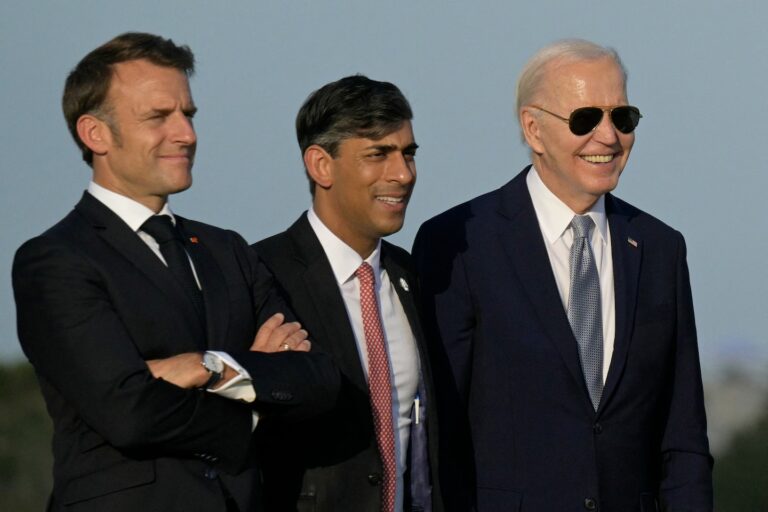Across the Channel, British Prime Minister Rishi Sunak had until next year to call an election but chose July 4. It now seems certain that he will be ousted on Thursday. Polls show the Conservative Party could end up with the fewest seats since its founding in 1834. After 14 years in power and five prime ministers in eight years, the Conservatives have lost popularity and run a sclerotic campaign that has only highlighted internal divisions.
On this side of the Atlantic, Mr. Biden demanded that the presidential debate be held as soon as possible. His team figured that a face-off with Donald Trump would give him a chance to allay fears about his age and stamina while focusing voters’ attention on the binary choice. The president’s advisers got the accommodations they demanded, including muted microphones and no studio audience. Instead, despite a week of preparation and rest, Mr. Biden’s performance sparked calls to shut down his campaign.
Paris, London and Washington have distinct political cultures and institutions, and each of these races is different. But they are nonetheless affected by a common geopolitical system. The domestic politics of these three nuclear powers are more closely linked than they seem. That is why the Brexit referendum in June 2016 foreshadowed Mr Trump’s victory five months later.
While most Britons now regret leaving the European Union, the anti-establishment mood still reigns in the Western world in 2024. All three countries have been rocked by the pandemic, inflation, Russia’s invasion of Ukraine and strong anti-immigration sentiment. That’s why Labour leader Keir Starmer, who is expected to become Britain’s next prime minister, attacked Mr Sunak on the issue from the right, calling him “the most liberal prime minister we’ve ever had on immigration”.
Given these headwinds, Mr. Biden’s resilience and durability in the polls have so far been remarkable. That’s a consequence of Mr. Trump’s polarization, combined with the strength of the American economy and, more specifically, its jobs market. But the president’s debate performance exposed its limitations.
A CBS News-YouGov poll released Sunday showed that 72% of registered voters believe Mr. Biden “lacks the mental and cognitive health to serve as president.” That figure was up from 65% a few weeks ago. By comparison, 49% of those surveyed said the same about Mr. Trump. A Morning Consult poll taken after the debate showed that 60% of voters believe Mr. Biden should be replaced as the Democratic nominee, including 47% of Democrats and 59% of independents.
To win, Mr. Biden will have to convince millions of people who do not believe he is up to the presidency to vote for him. What is happening in France and Britain shows that this is not as easy as he thinks. Instead of confronting this harsh reality, Mr. Biden’s family would blame the staff.
The president’s re-election campaign insists that he is not going anywhere. So far, no prominent elected Democrat has publicly called on Mr. Biden to step down—only pundits do. Loyalists denigrate and label as disastrous-catastrophists anyone who has not aligned with the president. Rather than make this case for Mr. Biden, the Democratic National Committee is reportedly considering rushing his official nomination to mid-July to quell any talk of a replacement.
Mr. Biden is expected to give interviews and hold news conferences. Yet his schedule is light this week, which only reinforces speculation that he functions best from 10 a.m. to 4 p.m. in a job that demands 24-hour attention. If Mr. Biden stays in the race and Republicans win the White House and both houses of Congress in four months, Democrats will regret not thinking more carefully about this moment when they might have avoided such a dismal outcome.


